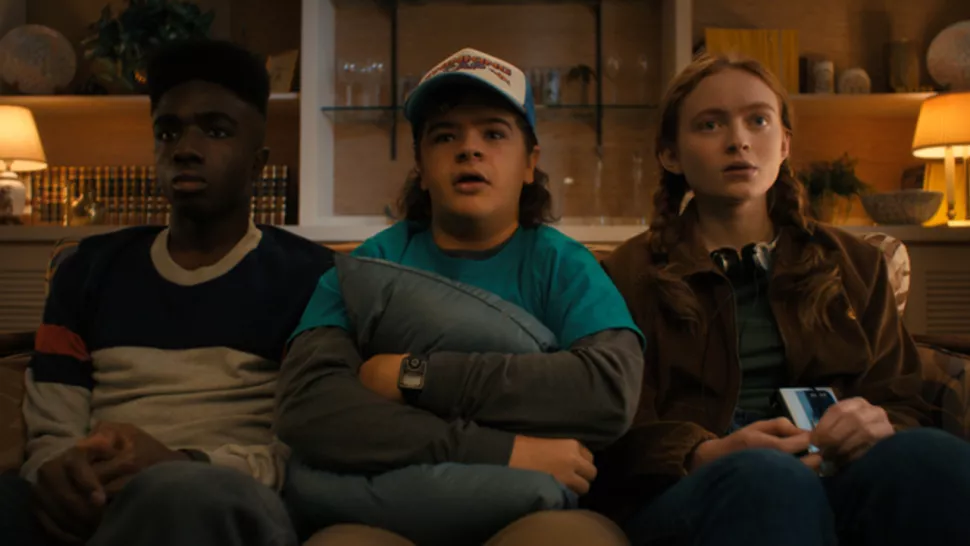Teacher Who Inspired Stranger Things Creators: Using the Arts to Educate
Strangers Things’ creators, the Duffer brothers, credit Hope Hynes Love with fostering and encouraging their early creativity. Love shares strategies for inspiring and educating students through the arts.

Stranger Things may owe its existence to a high school drama teacher named Hope Hynes Love.
An important seed of inspiration for the ultra-popular Netflix show was planted when the show’s creators, twin brothers Matt and Ross Duffer, were in high school and took classes with Love at Charles E. Jordan High in Durham, North Carolina.
“We had an amazing drama teacher – Hope Hynes (at Jordan High School). She was incredible,” Matt Dufer told the North Carolina Arts Council in 2017. “She more than anyone influenced us. We’re terrible actors, but I just wanted to be part of the drama department because she is an incredible director. She was fantastic with kids, and fantastic with people who hadn’t acted much. She was brilliant, and I still pull from the lessons I learned from her.”

In fact, one of the Duffer brothers earliest film-making endeavors was a documentary about high school theatrical production led by Love.
In anticipation of the release of part 2 of season 4 of Stranger Things on July 1, we spoke with Love who is now the Artistic Director at East Chapel Hill High School in North Carolina. Like any good teacher, she does not take credit for student achievements and downplays the role she played in helping to inspire the Duffer brothers’ immense success. However, she did share tips for educators on how they can inspire students and impart important life lessons through the arts.
Don’t Go Into Drama (Or Any Profession) for The Glory
Pursuing a career in acting, directing, or writing for the accolades is an unhealthy way to pursue the profession, Love says. “If you're doing this for the applause, go away, you won't survive in this profession,” she says. “That is the one thing I absolutely tell children.”
Instead, she tells students to get into these professions for love of the craft. She also advises them to get used to rejections and has realistic conversations about what a career in the arts entails.
Tech & Learning Newsletter
Tools and ideas to transform education. Sign up below.
“Can you deal with your finances being up and down?” she asks. “Do you have the discipline? What are the other side gigs that you can do? Do you have the family support system and financial support system?”
For most students, pursuing a career in the arts means developing related skills they can use while they wait for roles. That’s why her program encourages actors to develop their tech theater skills and vice versa, so advanced students graduate as what she calls “tractors,” who are capable of undertaking whatever task is needed for a production. “If you want to be a working professional, you better be a tractor,” she says. As the Duffers have demonstrated, there are plenty of theatrical career opportunities beyond acting.
Learning to Read Subtext
While arts funding in schools is seemingly perpetually on the cutting block, Hope says the lessons theater teaches are invaluable, even for students who don’t go on to create hit Netflix shows.
For instance, students in Love’s classes learn to read people’s body language. “People lie with their words; we do not lie with our breath or our bodies,” she says. “So when my mom says, ‘No, it's fine,’ but I see her furrowed brow, and I see that she's holding her breath, and I see that her fists are clenched, it tells me that it’s not fine.”
She teaches students that people can be complicated. “They have an internal life, and they have a fantasy life,” she says. “Who they really are and who they think they are–those things don't always align.”
This is, of course, useful for actors who need to convey subtext and multiple levels of meaning in a scene, yet it translates to so many other aspects of life. “I have a former student who's a lawyer now and he's like, ‘That one I use a lot,’” she says.
Students who take directing classes also learn life skills that are applicable to starting their own businesses and working in nonprofits, such as communication, collaboration, and problem-solving, among many other real-world skills.
Overcoming Trauma
Perhaps the biggest benefit of theatrical training is the way art is a vehicle to overcome trauma.
“If your child's a doctor, they're going to lose somebody someday,” she says. They can learn to process that trauma if they can find a way to be resilient in their soul. Singing in the car on the way home, for example, or going to choir practice, can be useful coping mechanisms.
The pandemic has made clear just how important resilience is, but the role art plays and can play in that is not always appreciated. “The way we respond and recover from any kind of trauma is art,” Love says. “When we are stuck, the first way we get moving again, individually, as a society, period, are the arts.”
Engaging with and creating art is even more rewarding, and high school drama programs are the last opportunity students have to learn from and gain access to what Love calls “a large, large bucket of human resilience.”
Erik Ofgang is a Tech & Learning contributor. A journalist, author and educator, his work has appeared in The New York Times, the Washington Post, the Smithsonian, The Atlantic, and Associated Press. He currently teaches at Western Connecticut State University’s MFA program. While a staff writer at Connecticut Magazine he won a Society of Professional Journalism Award for his education reporting. He is interested in how humans learn and how technology can make that more effective.

